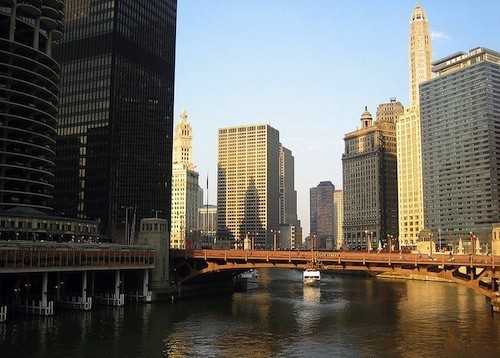
On May 11, the U.S. Environmental Protection Agency sent a forceful letter to the State of Illinois stressing that the state should adopt new water quality standards for major stretches of the Chicago Area Waterway System, including the Chicago River. The EPA indicated that portions of the Chicago and Calumet Rivers must be upgraded to protect the health and safety of people who use these waterways for recreation.
In the days since, much has been said -- and not said -- about the role and requirements of the Metropolitan Water Reclamation District of Greater Chicago (MWRD) in this matter. Here is where I stand:
I support disinfection of the wastewater discharged by the Metropolitan Water Reclamation District's treatment plants into the Chicago Area Waterway System. Dumping effluent that contains very high levels of bacteria and other pathogens into the Chicago and Calumet Rivers is not exactly best practice in wastewater treatment, and this has been apparent for some time. Until now, neither the federal government nor the State of Illinois has required MWRD to stop this practice. But it is clear that we can do better -- and it is time we do so.
While it is true that extraordinary civil engineering accomplishments in previous centuries -- such as the revolutionary Sanitary and Ship Canal and the reversal of the Chicago River -- allowed Chicago to grow and prosper, our water resources now face 21st century challenges. Not only have we opened the door to invasive species like Asian carp, we have effectively closed the door to the full range of safe recreation opportunities the water otherwise affords.
In recent years, people have been increasingly drawn to the Chicago and Calumet Rivers, using them for everything from kayaking and canoeing to dining along their banks and buying homes nearby.

The rivers are much cleaner now than they were years ago, largely due to the efforts of the MWRD to capture combined sewer overflows in the Deep Tunnel and in reservoirs and to treat this stormwater before releasing it into the waterways. But it is also clear that the district could do much more. I believe it is time for the MWRD to move from blocking change to studying how we can make it happen.
Of course, funding is an issue. I appreciate Senator Dick Durbin's support of the EPA regulations and his statement that he will seek federal funding to help defray costs associated with cleanup. Yes, the Clean Water Act -- on which the EPA order is based -- is akin to an unfunded federal mandate. Yet it is plain to see that the waters of the United States are much cleaner now than 35 years ago, when people of good will and great vision acknowledged that our waterways can and should be cleaned up.
Our region has always had good will and great vision. Chicago gave birth to the skyscraper, invented the mobile phone and, yes, reversed a river. It's a city that made big plans long before Daniel Burnham's decree, and one that continues to champion good ideas.
I believe the federal approach is reasonable and moderate and a good idea. By exempting the MWRD's largest treatment plant at Stickney from the requirement to disinfect effluent, costs will be cut by 50 to 60 percent. By recognizing that some time will be needed for the district to come into compliance, the EPA demonstrates a willingness to accommodate such major change.
A cleaner river is good for the environment, good for the economy and good for people. A cleaner river will boost recreation opportunities, generate new services and create new jobs.
A cleaner river is what the Chicago and Cook County should strive for, and I hope the MWRD will take a quick and thoughtful look at how to achieve this goal.